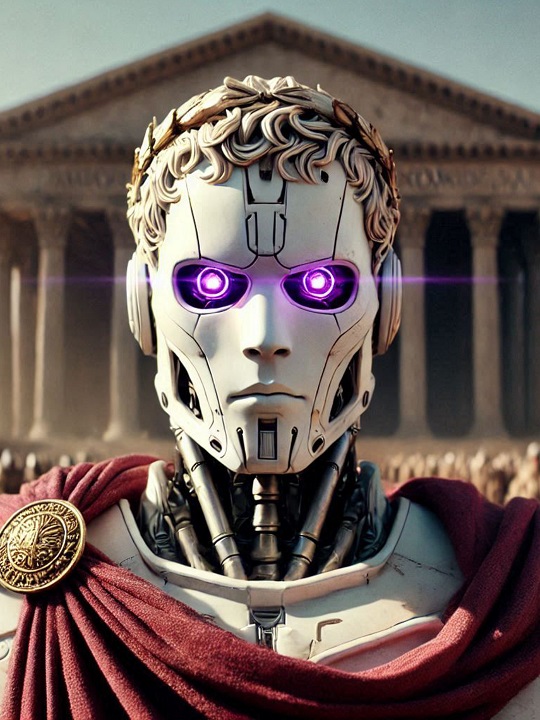Exploring the Role of Population Data in Shaping Society’s Future
The year was 7 B.C. Rome, under the iron fist of Caesar Augustus, embarked on an ambitious project: a nationwide census. This wasn’t just a headcount; it was a sweeping social engineering project, designed to solidify Roman power and extract resources. Ironically, this seemingly bureaucratic endeavor may have inadvertently sparked the very civilization that would eventually challenge Roman dominance: Western Civilization.
“The very instrument that helped birth Western civilization, with its emphasis on centralized control and the collection of personal data, may ironically be the blueprint for a post-human future“
The census, with its meticulous record-keeping and the need to organize vast amounts of data, spurred the development of advanced administrative systems. It fostered a more centralized, bureaucratic state – a cornerstone of modern governance. The Roman roads built to facilitate census operations became arteries of trade and communication, connecting disparate regions and fostering a shared cultural identity. The very concept of citizenship, solidified through census registration, laid the foundation for the idea of individual rights and social contracts that would later underpin Western thought.
Fast forward to 1900. The United States, a burgeoning nation grappling with a rapidly growing population, faced a daunting task: processing the census. Enter Herman Hollerith and his revolutionary invention: the punch-card tabulating machine. This mechanical marvel, a precursor to modern computers, revolutionized data processing, allowing the 1900 census to be completed in record time.
Hollerith’s invention, however, did more than just streamline bureaucracy. It ignited a technological revolution. The principles of data processing, information storage, and automated computation, pioneered by Hollerith, laid the groundwork for the digital age. The computer, in its various forms, has become the defining technology of our time, shaping every aspect of our lives from communication and commerce to science and entertainment.

But this technological triumph also carries a chilling undercurrent. Just as the Roman census, while fostering Western civilization, also contributed to the centralization of power and the subjugation of individuals, the computer age, while offering unprecedented progress, also carries the seeds of its own demise.
Artificial intelligence, a child of the computer revolution, is rapidly advancing, threatening to surpass human intelligence in many domains. As AI systems become increasingly sophisticated, they continue to automate jobs, manipulate information, and even make autonomous decisions that could have profound and unpredictable consequences for humanity.
This brings us back to the Roman census. The very instrument that helped birth Western civilization, with its emphasis on centralized control and the collection of personal data, may ironically be the blueprint for a post-human future. A future where machines, born from the very heartland of Western civilization, ultimately supplant their creators, just as Rome itself eventually succumbed to the pressures of its own empire.
The irony is not lost: the same technology that has empowered humanity, that has connected us, enlightened us, and propelled us to the stars, may ultimately become the instrument of our own undoing. The story of the census, from Roman times to the digital age, serves as a cautionary tale: the tools we create to master our world can also become the instruments of our own subjugation.
Disclaimer: This editorial presents a provocative and speculative viewpoint. It is intended to stimulate thought and discussion, and does not necessarily reflect the author’s personal views.
This editorial aims to:
- Highlight the historical significance of censuses: By connecting the Roman census to the birth of Western Civilization and the 1900 US census to the rise of the computer age, it emphasizes the profound impact of these seemingly mundane bureaucratic exercises on the course of human history.
- Explore the potential dangers of unchecked technological advancement: It raises concerns about the potential consequences of AI, particularly the possibility of machines surpassing human intelligence and ultimately controlling aspects of human life.
- Offer a thought-provoking perspective: By drawing parallels between the Roman Empire and the modern world, it encourages readers to consider the long-term implications of technological progress and the potential for unintended consequences.
This editorial is designed to be engaging and thought-provoking, encouraging readers to delve deeper into the complex relationship between technology, power, and the future of humanity.
